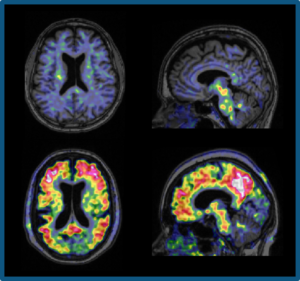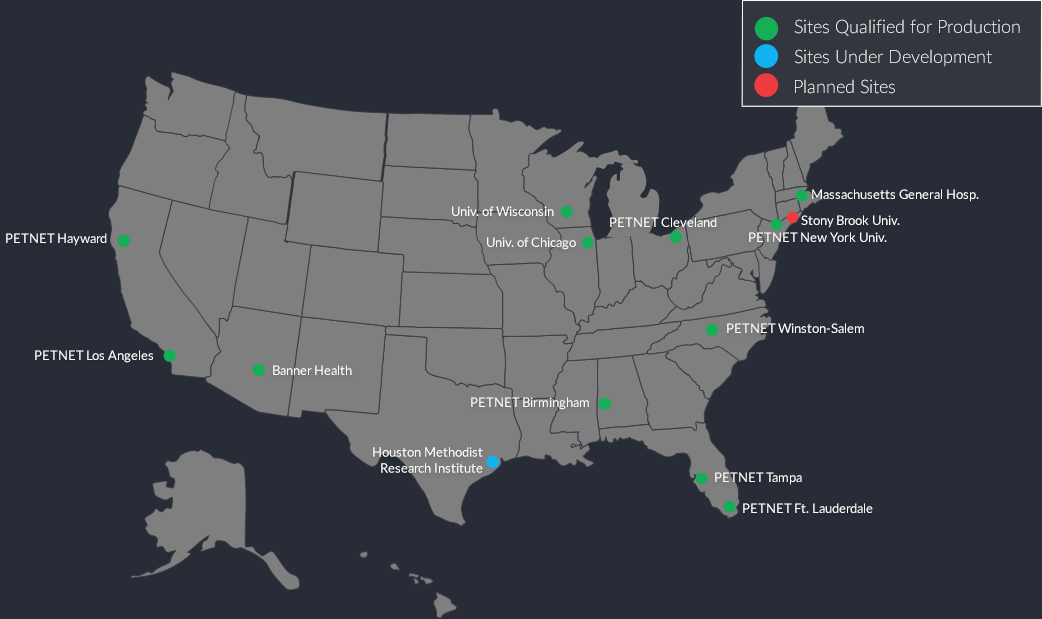Vision Statement
Our vision is to be the premier provider of imaging biomarkers for neurological pathologies, associated information technology and related tools to accelerate the development, approval and adoption of effective therapies to treat neurodegenerative diseases

Development and Use of Biomarkers are Essential Elements In Accelerating Development Of Disease Modifying Therapies (DMTs), Especially In Alzheimer’s Disease (AD)
Biomarkers have become critical proof standards in clinical studies supporting the development of DMTs. With the advent of Positron Emission Tomography (PET) imaging biomarkers, the ability to visually detect β-amyloid plaques and tau tangles has greatly enhanced the ability of researchers and clinicians to identify the presence of these pathologies. This new and growing capability is rapidly increasing the accuracy and confidence in clinical diagnoses for AD, which previously was only accomplished by post-mortem histopathology

Alzheimer’s Disease Prevalence And ß-Amyloid Plaques
-
- AD is the sixth leading cause of death in the United States.
- Approximately 5.8 million US residents are living with the disease today; that number is projected to rise to nearly 14 million by the year 2050.
- In 2019, AD and other dementias will cost the US $290 billion and this amount is projected to rise to $1.1 trillion by 2050.
- Several promising candidates are in late stage development along with a rich pipeline of early stage targets. The initial wave of candidates, focused on BACE (β-amyloid precursor protein cleaving enzyme) inhibitors, has now given way to new approaches, most notably antibodies targeting aggregated forms of tau.
- β-amyloid imaging agents are now commonly used as biomarkers in AD clinical trials, largely to enrich enrollment.

Meilleur’s late stage biomarker, NAV-4694, is poised to provide pharma and academic researchers with a ‘best in class’ second generation ß-Amyloid imaging biomarker
NAV-4694 and Meilleur’s Current & Future Distribution Networks
Production Sites: Outside United States

Production Sites: United States

